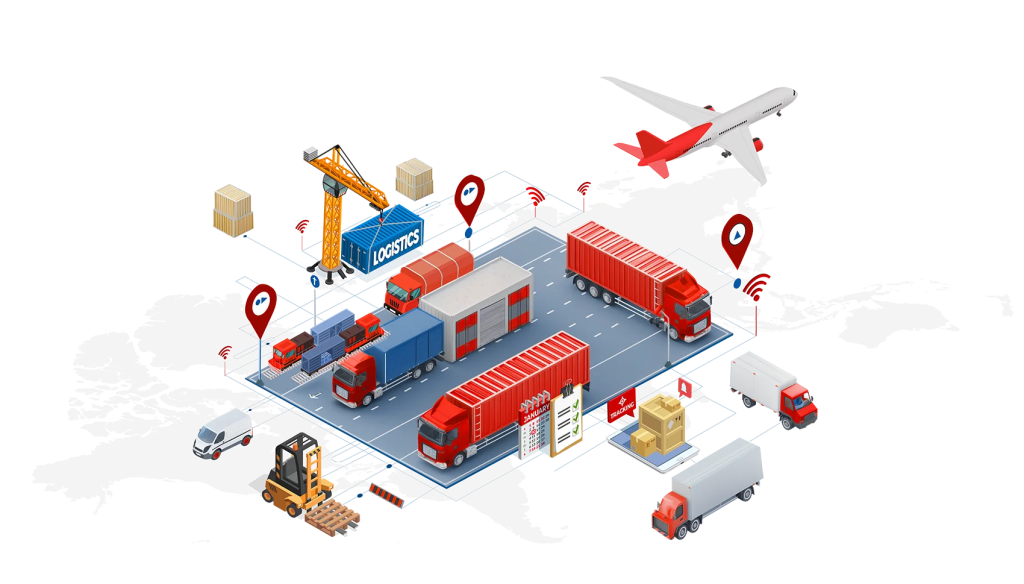Top Features of a Modern Logistics Platform
Introduction
Logistics isn’t just about moving products from one place to another anymore. Today’s fast-moving market demands platforms that go beyond basic shipping management. A good logistics platform should connect technology, data, and daily operations to streamline your supply chain, cut costs, and keep customers happy.
With so many options out there, how do you pick the right one? Here are the key features to look for in a modern logistics platform to keep your business efficient and competitive.

1. Real-Time Shipment Tracking and Visibility
Why It Matters
Customers expect to know exactly where their orders are at any given time. Real-time tracking and visibility across the entire supply chain are now standard expectations, not premium features.
What to Look For
- GPS-based tracking for shipments in transit
- Live updates on location, estimated delivery times, and route deviations
- Visibility dashboards for both merchants and end customers
- Integration with IoT sensors for temperature, humidity, or shock monitoring (critical for cold chain or sensitive goods)
Example
Platforms like PostalParcel offer real-time tracking integrated into their fulfillment dashboard, enabling brands to update customers and resolve delivery issues proactively.
2. Automated Inventory Management

Why It Matters
Manual inventory management is time-consuming and error-prone, leading to stockouts, overselling, or excess holding costs.
What to Look For
- Real-time inventory updates across all warehouses and sales channels
- Low stock alerts and automated reorder triggers
- Inventory forecasting using historical data and AI algorithms
- Seamless integration with your WMS and ERP systems
Example
A cosmetics brand using a smart platform with automated inventory sync can maintain accurate stock counts even during major promotions, ensuring smooth order fulfillment and customer satisfaction.
3. Advanced Route Optimization
Why It Matters
Delivery speed and efficiency are key differentiators, especially in ecommerce and last-mile logistics. Poor route planning increases costs and delays.
What to Look For
- AI-powered route planning based on real-time traffic data
- Delivery time window optimization
- Multi-stop and vehicle capacity planning
- Dynamic rerouting in response to delays or unexpected conditions
Example
PostalParcel’s route optimization module helps reduce fuel costs and delivery times by dynamically assigning orders to the best available routes and carriers based on live data.
4. Integrated Customs and Compliance Management

Why It Matters
For cross-border ecommerce businesses, customs clearance is often a major bottleneck, causing delays and added costs.
What to Look For
- Automated generation of customs documentation (commercial invoices, packing lists, HS codes)
- Duty and tax calculations are integrated into the checkout
- Pre-clearance capabilities to speed up customs processing
- Compliance with local regulations in destination countries
Example
A modern platform with integrated compliance tools can reduce customs delays and avoid unexpected fees, enhancing the international customer experience.
5. Multi-Carrier and Fulfillment Integration

Why It Matters
Relying on a single carrier or fulfillment center increases risks and limits flexibility, especially during peak seasons or disruptions.
What to Look For
- Access to multiple global and regional carriers with real-time rate comparisons
- Integration with multiple warehouses and fulfillment centers
- Smart carrier selection based on cost, speed, and reliability
- Ability to add or change carriers and fulfillment partners quickly
Example
PostalParcel’s platform integrates with a curated network of carriers and fulfillment centers in Asia, Europe, and North America, allowing brands to switch routes or partners seamlessly when needed.
6. Data Analytics and Actionable Insights

Why It Matters
Without data insights, businesses cannot identify inefficiencies, track KPIs, or plan strategically for growth.
What to Look For
- Dashboards that provide real-time and historical performance data
- Reports on on-time delivery rates, carrier performance, and transit times
- Inventory turnover analysis to optimize stock placement
- Predictive analytics to inform demand planning and marketing strategies
Example
Using PostalParcel’s analytics tools, brands can identify underperforming SKUs, adjust stock placement across fulfillment centers, and optimize promotions for better ROI.
7. Seamless API and Platform Integrations

Why It Matters
Disconnected systems lead to manual data entry, errors, and inefficiencies.
What to Look For
- RESTful APIs and webhooks for easy integration with ecommerce platforms, ERP, CRM, and marketplace systems
- Plug-and-play integrations with Shopify, WooCommerce, Amazon, and other major platforms
- Developer-friendly documentation and support for rapid deployment
Example
A brand using a logistics platform with robust APIs can automate order imports, inventory sync, and tracking updates across all channels, saving time and reducing operational overhead.
8. User-Friendly Interface and Support

Why It Matters
Complex platforms with steep learning curves slow down onboarding and increase user frustration.
What to Look For
- Intuitive dashboards and workflow navigation
- Role-based user access and permissions
- Responsive customer support with dedicated account managers
Example
PostalParcel combines enterprise-grade features with a simple, intuitive dashboard, ensuring logistics teams and management can navigate and act efficiently.
Conclusion
Choosing the right logistics platform is a smart move that can boost your efficiency, improve customer experience, and support global growth. Look for a platform with real-time tracking, automated inventory, route optimization, compliance tools, multiple carrier options, data insights, scalability, easy integrations, and a user-friendly interface.
Platforms like PostalParcel offer these features, helping ecommerce and cross-border businesses build a flexible and efficient supply chain that keeps customers happy.
Industry Insights
news via inbox
Nulla turp dis cursus. Integer liberos euismod pretium faucibua








